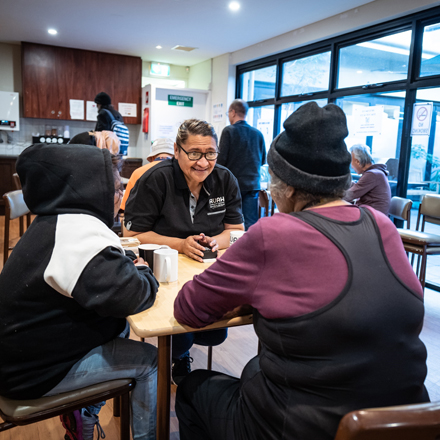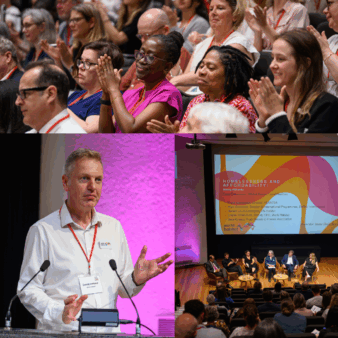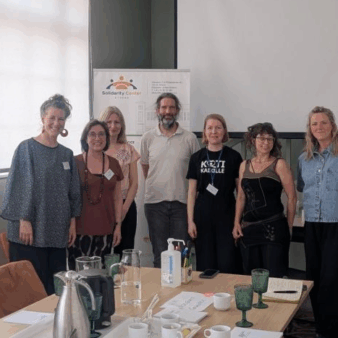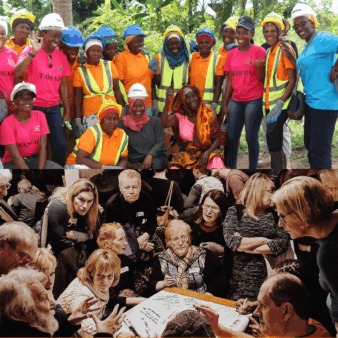
Leah Watkins, 50 Lives 50 Homes Manager for Ruah Community Services in Perth, Western Australia, shares how homelessness services in Australia are learning from services in Europe, as they prepare for an increase in COVID-19 cases.
Here in Perth, Western Australia, we live and work with people experiencing homelessness in one of the most isolated cities in the world. Right now, it feels like a good thing being a few steps behind the rest of the world as we anticipate the spread of COVID-19 through our community. It gives us, working at Ruah Community Services (Ruah), a few precious weeks to learn from other countries and try to adapt what has and hasn’t worked to our context.
As of 21 April, Western Australia had 546 cases and only 7 deaths. While we are so early in the progress of the virus, there is an opportunity to provide immediate accommodation to a group of people who are unable to follow the health advice and government regulations, and to prevent overloading our health system.
So, what are we doing? Lots of things, all at once and sometimes in the wrong order, but that is the nature of working in a crisis.
Ruah supports people experiencing homelessness, mental health problems, family violence and legal issues – with a large proportion of our team doing outreach and home visits. A few weeks ago, we transitioned to remote operations – with the bulk of our workforce able to pick up their laptops, borrow a screen, a few cables and sometimes even a chair from the office – and with little disruption begin to work from home. Much of our work has shifted to phone-based support, though some face-to-face work continues particularly with people experiencing homelessness and mental health crises.
The experience of Spanish homelessness organisation Hogar Sí gave us insight into how our phone support needed to be different if it was going to be the only support people were receiving. We are learning to adapt so that social distancing doesn’t mean leaving people isolated.
We are fortunate to already have strong collaborative relationships in place, built from the work of the WA Alliance to End Homelessness and through collective impact projects like the 50 Lives 50 Homes project that Ruah leads. Using a Housing First approach, 50 Lives 50 Homes works towards ending homelessness, finding housing for the most vulnerable rough sleepers and then providing wrap around support to reduce the risk of returning to homelessness. We are working very closely with the State government and our sector colleagues to develop cross-sector responses and share resources as we prepare for a rise in COVID-19 cases.
In this work, we have been inspired by the UK homeless sector’s response to COVID-19. It helped us understand the need for separate facilities for vulnerable people who have the virus, due to these individuals being susceptible to much worse outcomes if they were to contract the virus. It also helped us plan ahead for the many people in housing need who simply need accommodation to be able to follow health advice and government regulations around social distancing, hygiene and the use of public places.
We are also continuing to roll out the ending homelessness work we have been doing supported by Community Solutions from the USA. The use of the By-Name List tool is being adopted in cities across Australia, providing a mechanism for workers across the sector to collectively identify everyone sleeping rough so we can make sure no-one gets left behind. As it develops, it will also help us understand how our system works and how we can improve it.
I believe this crisis presents opportunity to drive a real reduction in homelessness because the world can now see what we have always known – homelessness is a health issue.
We will continue to work in partnership with government, the sector and businesses to not just give people somewhere to stay for a few months, but to get people into real homes and accelerate the transition to a Housing First approach across the sector as a whole.




Join the discussion